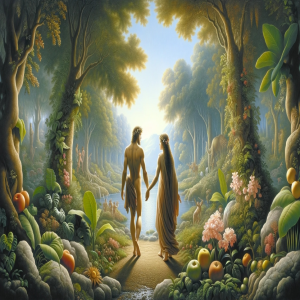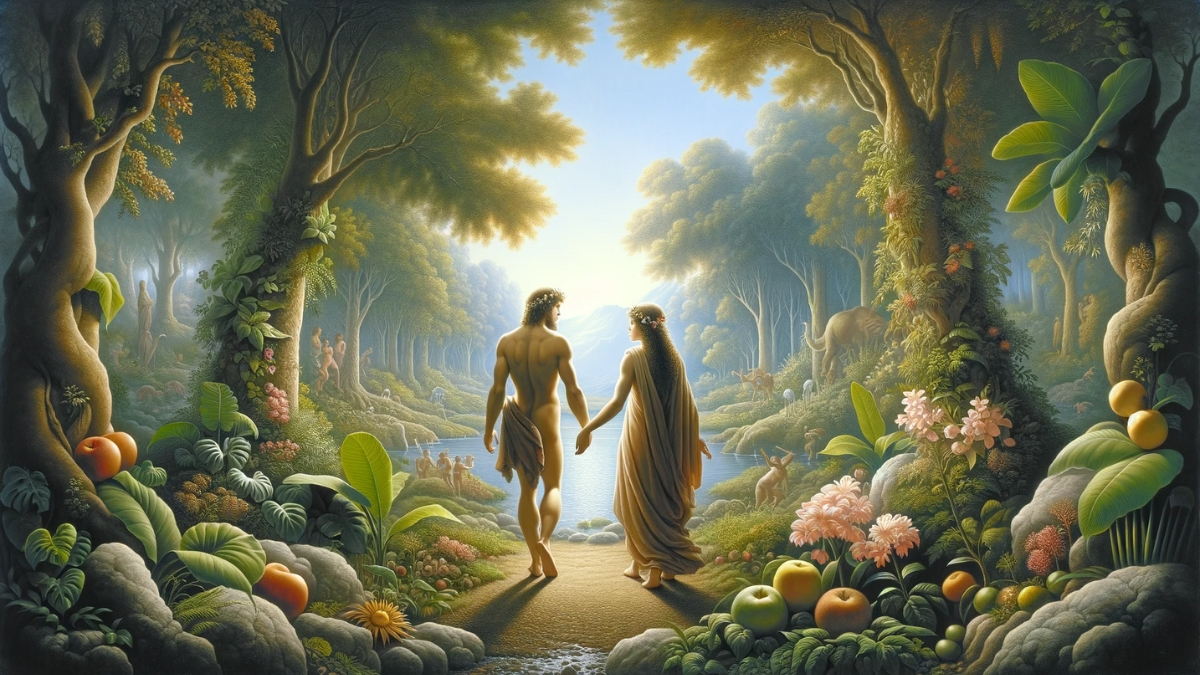
.jpg) Peter Fernandes
Peter Fernandes

"Let's build a godless society" is a seductive slogan that reverberates globally. Can God be replaced? A little child surprisingly shocked me when she innocently reported, "You're going to need another god. I broke this one." Can God be multiplied? Why do humans want to kill God, or do humans have the power to kill God? Contemporary society considers these questions seriously, as reflected in what the child innocently reported about a broken god.
It should not come as a surprise. The book of Genesis tells the story of the first parents, Adam and Eve, who considered these questions seriously and acted upon them to replace God by taking his place. When humans try to take centre stage, the whole of creation is in peril because it is not in their power to determine and guide it to its proper end. How can mortals guide the whole of creation when unaware of its beginning and end? The restless humans continue to be rattled because trying to end the story by killing the storyteller is not a wise decision. Theories like evolution, whose underlying principles are 'chance' and 'survival', cannot determine truth.
What is the motivation for contemporary society to champion the causes of sexual liberalisation, abortion, and gay marriages? From time immemorial, humans have been suspicious of religion and those administering religion for restricting their desire to live to their full potential and freedom. Karl Marx famously said that religion is the opium of the people. Sigmund Freud saw religion as providing a cowardly refuge from the harsh realities of life and the inevitability of death. The Big Bang theory and the theory of evolution have provided an apparently solid foundation and motivation for contemporary society to digress from the truth and objective morality. Therefore, in Nietzsche's scheme, it is not strictly accurate to say that God has died. Instead, man has killed God to win for himself the freedom to make his own morality—the will to power."
Bertrand Russell wrote in Why I Am Not a Christian, "Is its attitude towards sex?" Christopher Hitchens writes that "the divorce between sexual life and fear... can now at last be attempted on the sole condition that we banish all religions from the discourse. With such a stance, modern society discredits the role of God and clergy, saying, "Temples and holy men reap earnings and exalted status from the supernaturalism they administer to their followers."
The new religion of humanism is governed by the dictatorship of relativism, which frowns upon the concept of God as Creator and Sustainer and holds the license for immorality. Philosopher Thomas Nagel confessed to a "fear of religion itself." As he put it, "I want atheism to be true. It isn't just that I don't believe in God. I don't want there to be a God; I don't want the universe to be like that." The younger generation today is more inclined and attracted to a new form of religion that promotes universal concepts such as "brotherhood of all men," beauty, justice, love, peace, progress, etc., but it does not hold any moral bars because it emanates from relativism.
The elites of the world like to speak with flowery language about the new religion of humankind. A manmade religion, for God, is dead. If at all there is a God, their understanding is more of a metaphysical one, not a kind where one can have a personal relationship or who has any personal interest in us, is a matter of grave concern. In God: The Failed Hypothesis, physicist Victor Stenger confesses that not only does he disbelieve in God, he doesn't like the Christian God: "If he does exist, I personally want nothing to do with him." The modern form of atheism is coloured with beautiful and universal concepts that are deceiving and betraying but successful in killing God and, at the same time, satisfying the need for one.
Ironically but equally tragically, every generation tries to kill God, but God survives, and this is self-evident because every generation feels the need for God. Therefore, the existence of God does not depend on human whims and fancies; He is Alpha and Omega— I am. His existence is crucial and essential for objective truth, justice, and morality to govern human society for the common good and to fulfil the deepest yearning of the rational soul. Consequently, rational beings must know and understand that without God, there is no truth. Justice or morality will be pushed out of the window.
CS Lewis beautifully posits: "Conscience is nothing other than the voice of God within our souls. It is the bridge that links the creature to the creator. Even the atheist hears this internal confirmation call because even the atheist has morality at the core of his being, and while the atheist may have rejected God, God has not rejected him."
The serpent's temptation in the Garden of Eden was also directed at human pride: Why should you serve? Why not choose your future, which will perhaps be better than the one God has planned for you? Why obey God when you can be, as a god, a law unto yourself? With these thoughts, two thousand years ago, in Palestine, the Jews and Romans came together against a common enemy, Jesus, who claimed himself to be God, to put him to death on the cross. They succeeded in nailing him to the cross, but were they successful in their purpose? Three days later, he rose from the dead and lives on. Truth never dies, for truth is eternal.
While describing the nature of rational beings, Aristotle said, "By nature, humans desire to know, and the object of their desire is truth." Jesus asserted and personified the eternal truth, saying, "I am the way, the truth, and the life." The quest to kill God is not an honest and intellectual pursuit but is woven with immorality and a false sense of freedom. For that reason, modern society is scared of a Christian God. The modernist doesn't find God invisible so much as objectionable. They aren't adjusting their desires to the truth, but rather the truth to fit their desires.
The greatest travesty of humankind, and especially of our time, would be to think that we can get rid of Conscience and moral judgement by killing the judge—God. God is not dead, and foolishly, don't ever try to kill Him. Consequently, for humans to have a proper perspective for a purposeful life, Jesus asserts, "Know the truth, and the truth shall set you free." No one has the power to kill truth; truth is one, immutable, perfect, and eternal.